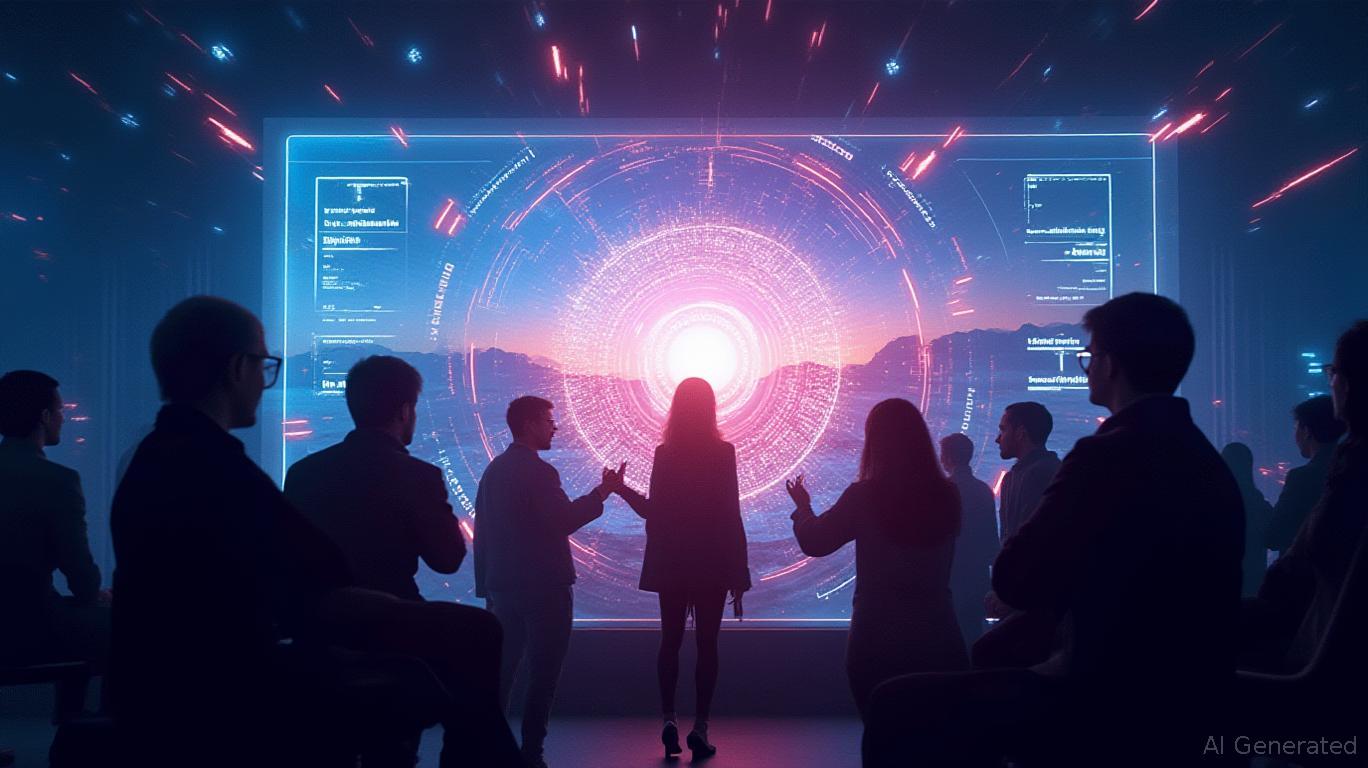DAOs Emerge as a Remedy for the Personality-Driven Culture in Crypto
- DAOs are replacing crypto cult leaders by enabling decentralized governance through blockchain and smart contracts. - They reduce individual influence, promoting transparency and community-driven decisions in projects like MakerDAO and Uniswap. - Challenges include regulatory uncertainty, smart contract vulnerabilities, and voter apathy, hindering mainstream adoption. - Governments explore DAOs for public sector transparency, signaling potential broader adoption as tech advances.
For decentralized governance to truly take hold, DAOs must step in for influential crypto personalities
By 2025, the influence of charismatic leaders within the cryptocurrency industry is coming under greater examination, as Decentralized Autonomous Organizations (DAOs) are positioned as viable alternatives to conventional, centralized leadership models. DAOs utilize blockchain and smart contracts to foster open, community-led governance, thereby minimizing the sway held by prominent individuals who have long directed the direction of the crypto sector. This evolution is spurred not just by the desire for more transparency and inclusiveness, but also from the growing awareness of the dangers inherent in concentrated leadership.
With decentralized governance, token holders are directly involved in shaping project decisions, preventing any one person or faction from monopolizing control. This stands in sharp contrast to standard corporate structures, where a handful of executives hold the reins. Examples like MakerDAO and Uniswap have shown that DAOs can successfully oversee financial protocols and decentralized trading platforms without a central authority. In such systems, protocol upgrades, risk parameters, and treasury distributions are all decided through collective input, creating a fairer and more open framework.
DAOs offer the significant benefit of breaking up power concentrations often seen in legacy organizations. However, the presence of "whales," or major token holders, can still lead to disproportionate influence over key decisions, sometimes at the expense of the wider community’s interests. To combat this, DAOs are adopting advanced voting techniques like quadratic and conviction voting to balance the distribution of influence and prevent dominance by large holders.
The momentum behind DAOs is also fueled by new technologies that boost their efficiency and scalability. Artificial intelligence and machine learning are increasingly being woven into DAO governance to support better decision-making. These AI-driven tools can analyze voting behaviors, forecast results, and pinpoint risks, thereby streamlining and strengthening community-led governance. Moreover, platforms such as Aragon and Gnosis Safe are lowering the technical barriers, enabling broader participation in DAO creation and management.
Nevertheless, DAOs still grapple with key obstacles before reaching their full promise. Regulatory ambiguity is a major challenge, as authorities work to interpret and oversee DAOs within current legal systems. This uncertainty complicates efforts for DAOs to integrate with established industries and traditional finance. Security issues in smart contracts also threaten DAO stability, as past events—like the 2016 DAO hack—underscore the ongoing need for robust safeguards.
Another persistent problem is member disengagement, where many DAO participants remain inactive in governance matters. This can result in poor voter turnout, giving a small group outsized decision-making power. To counter this, some DAOs are testing new voting structures and incentive mechanisms to drive greater involvement and ensure that outcomes truly reflect the community’s collective voice.
Even with these hurdles, the DAO movement is advancing rapidly, with uptake growing in fields such as public governance and decentralized finance. Governments are starting to investigate DAO-inspired systems to improve transparency, accountability, and citizen engagement. Countries like Estonia and Switzerland are piloting blockchain-based governance models that could serve as a foundation for more widespread DAO use within the public sector.
The trajectory of DAOs will depend on ongoing progress in governance mechanisms, treasury strategies, and contract security. As regulatory clarity improves and technological innovations enhance DAO performance, these entities are set to play a larger role in the evolution of governance. Ultimately, DAOs aim to not only decentralize decision-making but to foster a more just and transparent ecosystem, empowering both individuals and communities to actively shape the crypto industry’s direction.

Disclaimer: The content of this article solely reflects the author's opinion and does not represent the platform in any capacity. This article is not intended to serve as a reference for making investment decisions.
You may also like
[Initial Listing] Bitget Will List Datagram (DGRAM) in the Innovation and DePIN Zone
Bitget Spot Margin Announcement on Suspension of L3/USDT, ULTI/USDT Margin Trading Services
Bitget PoolX is listing Planck (PLANCK): Lock BTC to get PLANCK airdrop
Bitget x PLANCK Carnival: Grab a share of 1,880,000 PLANCK!